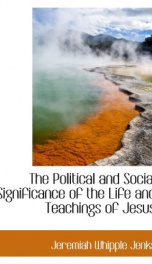governmental action for social welfare

Purchase of this book includes free trial access to www.million-books.com where you can read more than a million books for free. This is an OCR edition with typos. Excerpt from book: The question is sometimes asked whether it is best to have social investigations made by the government or by private committees or commissions. Both forms are clearly desirable; both have their special advantages. Many investigations, as for example, one into the workings of the great corporations in the United States or immigration or the spread of tuberculosis or pauperism must, to be successful, be made on so large a scale and involve the expenditure of so much money, that these studies can usually best be carried on by the government. Moreover, in some of these investigations it is desirable to ascertain what some people might wish to conceal. It may therefore be desirable to examine witnesses under oath, to have the power to compel the production of books and papers and accounts. For investigations of that type the government is clearly best fitted. On the other hand, we know that governmental investigations are sometimes influenced by political pressure, by the desire to secure partisan advantage, although that is rarely thecase in scientific investigations of the type indicated. Even aside from the desire to secure partisan advantage, men in political positions often wish to secure appointments for friends or constituents, and men appointed for such reasons are often not the best fitted for scientific investigation. Fortunately, pressure of this kind is much less frequent now than earlier, and there is little to fear from such a source beyond possibly slightly added expense. The advantage of examining witnesses under oath is in part offset by the fact that many, perhaps most people will give information more freely and more accurately if they talk alone with trustworthy individuals, unless the information desired be such that they feel they must withhold it except un...
Info about the book
Author:
Series:
Unknown
ISBN:
0773540865
Rating:
3/5 (3)Your rating:
0/5
Languge:
English
Users who have this book
Users who want this book
What readers are saying
What do you think? Write your own comment on this book!
write a commentif you like governmental action for social welfare try:
Do you want to exchange books? It’s EASY!
Get registered and find other users who want to give their favourite books to good hands!







